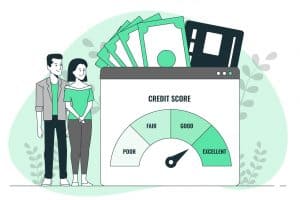Are you interested in getting into the Singapore property investment industry? Perhaps you are planning to own your first residential property? For many, this is a logical step to take, as it can provide an extra stream of income.
If you are thinking of joining this industry, or are already an investor but your funds are low, here are some tips on how to invest in Singapore property with little money.
Flipping
Since the 1970s, property investors have been buying houses and selling them for capital gains. This is known as house flipping. Usually, this involves purchasing an older home in need of some repair or updating.
Then, make any necessary improvements to increase the value of the existing property (updating/repairing) and sell it at a higher price than its purchase price (profit or capital appreciation). Although you can make money flipping houses with less work, here are 5 tips to flipping multiple properties.
Important Step to Flipping
Do your research
Before buying property, do some research on the value of the neighborhoods and similar homes in that area. You will want to find an area that has the potential for high value appreciation and rental yield. You can find a good house in property auctions as well to purchase a property fast.
For example, if you buy a home for $100,000 and the value of similar homes in that area appreciates by 5% (so they are now worth $105,000), then your home is now worth $105,000 as well. You spent $100,000 to buy the property and made $5,000. You just flipped a house.
Have a plan of property investments
Investing in property can be very profitable if you have a plan and understand the market well enough to make smart decisions. The best way to make a budget and know capital appreciation is to estimate the cost of potential improvements and add 15% for unexpected costs.
For example:
$100,000 (total you can spend on house) + $15,000 (estimated extra/unexpected costs) = $115,000 (gross rental yield)
Select a property
Take your time while searching for a Singapore property. When you find one that is well priced with a good potential gross rental yield, in an area poised for growth, and in need of renovations or updates, then it may just be the perfect property to flip.
Additionally, seeing the home in person will help you better determine its potential market value and rental yield after improvements are made.
Improve your home
After narrowing down a residential property, create a plan of improvements to increase the market value higher than what you paid for it.
Utilize that information or hire a property agent to help in planning and executing the renovations for your specific project.
Sell it
After all the work is done and your house has increased in estimated market value, then it is time to sell. When selling, set the price at a point that will attract buyers but not leave you with too little of a capital appreciation after expenses like closing costs and commissions.
In sum, there are four tips in flipping properties: do your research, have a plan, select the right property, and improve it.
Buying and Renting for Rental Income
Buying and renting properties is one of the most common ways on how to invest in Singapore property with little money. There are many ways that you could purchase real estate with no down payment.
When conventional banks see your lack of down payment, they usually will increase the interest rate. To keep it simple, we’ll only choose the 4 most common ways of buying and renting.
Rent-to-own option could be an alternative solution for those who want to avoid high interest rates. The best way to learn how to buy a house with no money is to look at some examples such as securing conventional mortgage payments for a house you want to live in, knowing housing loans, home loans, owning a land contract, or a lease option.
This also works as commercial properties like shopping malls and arcades.
Property Investment Common Methods

The Traditional Path
This is the most simple way of buying a home using little or no money down. What you would do is to secure a conventional mortgage for a house that you want to live in. Once your purchase payment gets delayed,the bank could start foreclosure on your property. To prevent this from happening, you could apply for a fix-and-flip loan.
Mortgage
Do not be scared by the term “fix and flip loan”. You will secure this type of loan with other investors who buy houses fast in your area. The investor would put money down on the house you want to purchase and you will pay the remaining balance monthly until the investor is satisfied. Loan to value ratio, total debt servicing ratio, and assessed additional buyer’s stamp duty (ABSD) will depend on overall property quality. Mortgage interest may increase over time.
Land Contract
A land contract means you are making regular monthly payments until the seller is satisfied and transfers full ownership to you. These monthly payments go towards the property prices in question.
Leasing
This is also known as “rent to own” or “lease purchase”. You should know that this option requires you to have no credit card debt on your property investment. You will first invest in a property by making monthly rental payments until the tenant is satisfied and transfers full ownership of the property to you at the end of the contract period. Monthly rental income depends on the overall property value.
REIT Investment
Investing in REITs can lead to great returns if done effectively. Nowadays, investing has become a common phenomenon among the masses and investing in the property market works as a common property investment class. Find out more on the best REITs in Singapore.
REITs or Real Estate Investment Trusts are an investment that allows investors to earn by owning different kinds of properties – industrial, retail, apartments and so on – without having to take up any responsibility for managing them.
The returns from this kind of a Singapore property investment vary according to the kind of project, its location and the property type.
REITs are like mutual funds which invest in the property market. However, REITs do not actually own any property but rather own shares in companies that themselves purchase and own properties directly.
So when you invest in a stock, it does not give you any right to the property itself. The holder of a trust’s stock has a share in the company’s assets and earnings but does not have any direct rights to its real estate holdings or other investment property.
Final Word
Knowing how to invest in Singapore property with little money always requires dedication and diligent research. Don’t forget about the property tax in your investment, diversifying your bank accounts, and relevant government policies that may affect your property investment. In addition to these reminders, also keep in mind the following:
- House flipping is the most common Singapore property investment of buying and selling property and making maximum capital appreciation.
- Buying and renting properties comes in many forms but it all depends on the situation whether you have a land contract, a possible mortgage or lease the place.
- REIT requires good knowledge on the right properties to invest in. It is a risky choice but the pay-off is possibly huge.
- When you need tenants for your property, make sure you accommodate their basic needs like plumbing, roofing and sound-proofing.
- A good property will reward you with good credits, especially if you are on time with rent payments and providing quality for your establishment.
If you require cash immediately for any reason or need financial tips, we at Instant Loan can help. Contact us now and we will offer you best loan package from the top financial institutions in Singapore as exclusive access at no cost.








